An ex-anti-abortion evangelist on life as a pro-choice ‘traitor’
American Reverend Rob Schenck made a name for himself denouncing ‘baby killers’. Then he changed his mind.
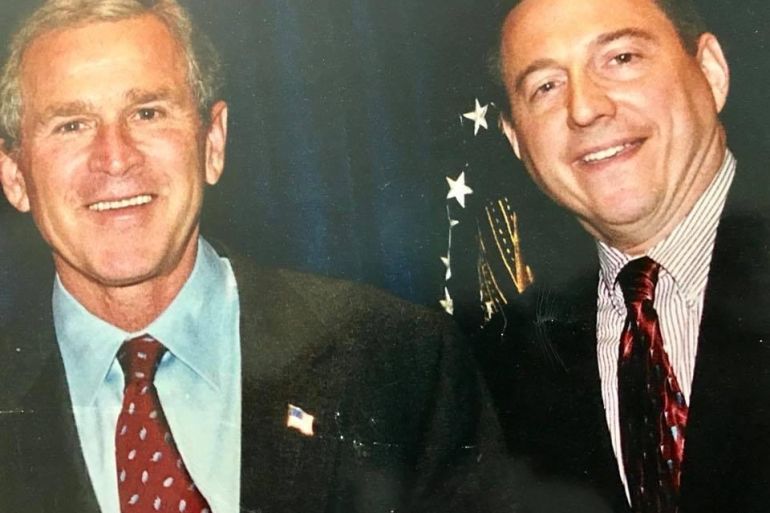
The dentist was worried. During the checkup, he’d noticed the kind of significant damage often caused by years of gnashing and grinding one’s teeth.
“Are you experiencing any stress?” he asked his patient.
Keep reading
list of 4 itemsManhattan prosecutors announce retrial for film producer Harvey Weinstein
‘Profoundly unjust’: Reactions to court overturning Weinstein’s conviction
Top New York court overturns Harvey Weinstein’s 2020 rape conviction
“Yes,” said Reverend Rob Schenck. “A little bit.”
Shortly after this visit to the dentist late last year, Schenck, a 64-year-old evangelical minister who lives in Washington, DC, opened his email and discovered multiple messages: some confused, most critical. The reverend doesn’t try to hide his email address, so most days his inbox fills with messages dripping with vitriol.
“When I hear from the right, it’s usually to call me some form of ‘traitor,’” he says. “The other side is a little sceptical of my late-in-life conversion.”
It happens in person, too, nearly every time Schenck makes a speech or public appearance.
One woman, for example, told him, “You did a whole lot of damage. You did a lot of bad stuff. You hurt a lot of people.”
Once a famous anti-abortion activist, Schenck (pronounced “Shank”) is now openly pro-choice and highly critical of the role he played in ending national abortion rights in the United States. It’s a remarkable heel turn for someone who worked to overturn Roe v Wade, the 1973 United States Supreme Court ruling that enshrined the right to an abortion.
As a staunchly conservative evangelical leader, Schenck personally befriended and lobbied judges who sat on the court, and was part of a group that paid “Jane Roe” roughly half a million dollars to say she had changed her view on reproductive rights. Roe, whose real name was Norma McCorvey, challenged abortion law in what would become a landmark win for abortion rights. Then, throughout the 1990s and 2000s, she claimed that she had changed her stance on the procedure, before confessing that she was lying.
The reverend also trained “thousands” of protesters to block the doors to abortion clinics. In one infamous incident in July 1992, Schenck was arrested for, as he puts it, “thrusting an aborted foetus” at presidential candidate Bill Clinton. Schenck and his associates approached Clinton and presented the foetus — procured illegally from a pathologist in Tulsa, Oklahoma — while faking interest in an autograph. Like many of his other stunts, it led to Schenck being arrested.
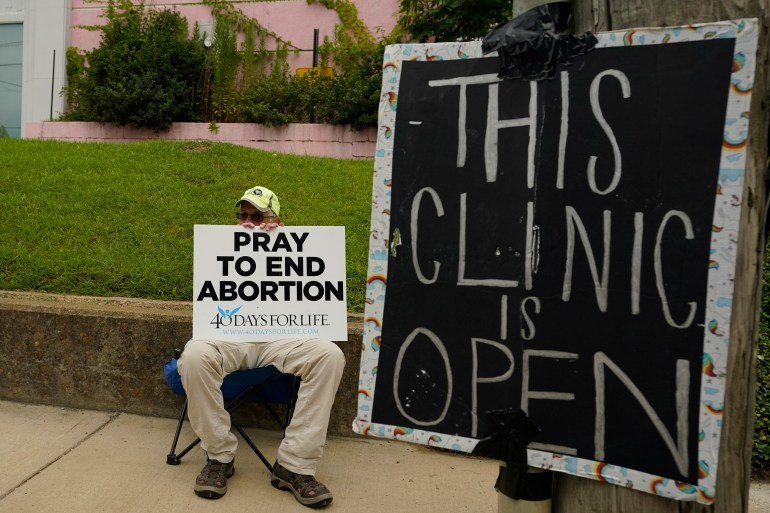
Actions like this were common during Schenck’s time as a member of a New York affiliate of Operation Rescue, an organisation known for its vehement opposition to abortion. As described by Schenck and contemporaneous media coverage, the group’s members were taught to block access to abortion clinics and yell at patients as they tried to get past them.
The organisation, now known as Operation Save America, confirmed that Schenck worked for them and affirmed their ongoing opposition to abortion. “We train our folks to be winsome and compassionate and to be able to connect these moms to resource centres and churches in their area that can help give them the support they need,” Jason Storms, the organisation’s national director, told Al Jazeera. “We also share the message of the Christian gospel, that abortion is a sin, it is a violation of the commandment not to murder, and it is a betrayal of the parental duties to love and protect one’s own child that God has built into His created order.”
Schenck harassed physicians, too, including Dr Barnett Slepian, an abortion provider at a women’s health clinic in Buffalo, New York, accusing him of “killing unborn children”.
Then, in 1998, Slepian was murdered.
The doctor’s name was on a list that members of the anti-abortion movement termed “The Nuremberg Files” to compare pro-choice doctors with Nazis. After Slepian was shot and killed in his New York home, Schenck sent flowers to express his condolences. Slepian’s widow returned them, smashed, blaming Schenck and his organisation’s rhetoric at least in part for the murder.
“My message to you, Mr Schenck, is to look within yourself for forgiveness,” Lynne Slepian wrote in a note accompanying the flowers. “You certainly won’t receive it from me or my family. It’s your ‘passive’ following that incited the violence that killed Bart and took away both my and my children’s future.”
“I remember advising Rob, who wanted to try to meet up with Slepian’s wife in person,” recalls Reverend Patrick Mahoney, Schenck’s friend for more than three decades. “I told him that’s probably not a good idea.”
Schenck now cites the doctor’s killing as a turning point: He began questioning the tactics of the anti-abortion movement with which he was associated, and in turn, questioned if he had the right to tell a woman what she should or should not do.
“What happened with Slepian, with me, is that it put some doubt in my mind about moral certainties: that we were the moral force and everyone else was immoral,” he says. “I was starting to think, ‘Are we as good as we think we are?’”
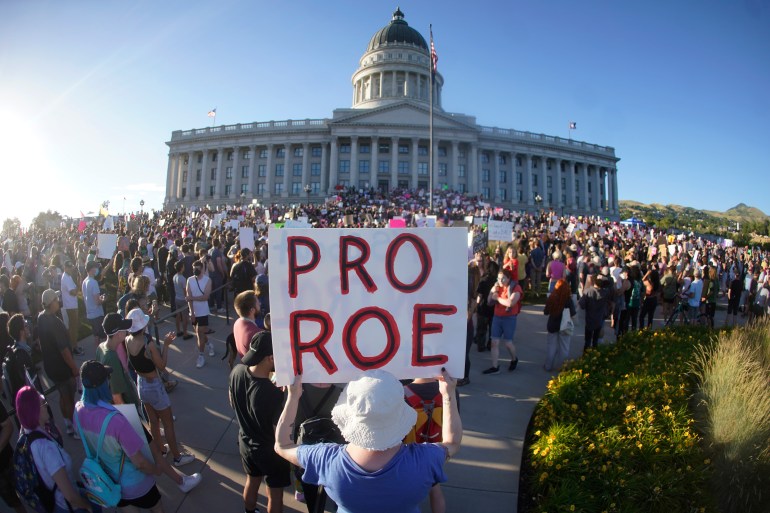
Still, it would take another 20 years for him to announce, in a 2019 op-ed for The New York Times, his change of heart. He had already stopped participating in blockades of women’s health clinics in 2000 and withdrawn “quietly” from Faith and Action, the now defunct DC-based organisation he founded in 1994 to minister to US politicians. All the while, in any email exchange or public conversation he could have, Schenck was listening to women share their stories about the difficult decision they had made to end a pregnancy.
One conversation, in particular, played a pivotal role in his transformation.
Abigail Disney, a documentary filmmaker who met Schenck in 2013, talked to him at length about the years he spent reflecting on past conversations and distancing himself from the work that made him famous.
“It was a gradual churning,” she says of the reverend’s changing views. Disney cites one particular instance from the late 1990s in which Schenck was in a county jail in the Southern US. “He told me a story about when he was locked up, and there was a pregnant woman there who had kids at home, too. He knew this movement he was a part of would’ve told the woman to have her baby, no matter what, but he had some hard questions for himself about where the energy was for helping this woman after her pregnancy.”
Schenck is still asking himself hard questions, particularly now that Roe v Wade has been overturned. In 2022, nearly three decades after his anti-abortion work began, the US Supreme Court ruled that the Constitution does not give women the right to an abortion. It was a moment of triumph for many of Schenck’s former friends; in Schenck’s opinion, it was the final confirmation that, as he calls it, the “fiction” of his former movement — and the lobbying in which he took part — had worked at the highest levels of power.
“We set up what we thought abortion and its consequences looked like,” he told Al Jazeera during one of many interviews for this story. “For example, that women make these choices impulsively, often for very selfish reasons, or because certain groups within society pressure them or tell them carrying a pregnancy at this stage in your life is going to cost them opportunities. This is what we convinced ourselves leads women to abortion.
“Well, that is just patently untrue,” he continued. “When you start patiently listening to women across the board, they have a myriad of different reasons for choosing abortion. We imagine that whenever a woman decides to give birth, that all the necessary support systems will be there for them: if not family then the government, if not government then the church. We imagine that there’ll be free healthcare, there’ll be a job. We tell ourselves it’s all there, just for the asking. We convinced ourselves of that because, I’ll speak for myself, it helped justify my absolutist position on abortion.”
Schenck is now engaging in what he calls “reparative, restorative work”, which includes writing, speaking and supporting organisations like his former “nemesis” the American Civil Liberties Union (ACLU), an organisation that fights for freedom of expression, due process and equality.
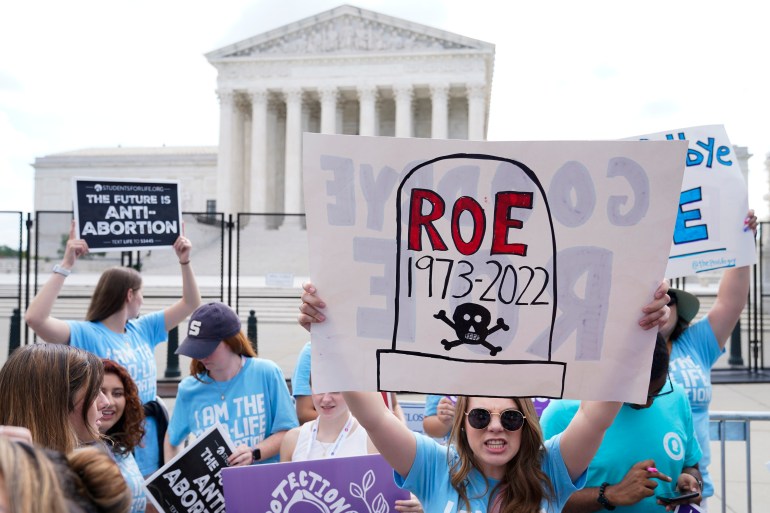
He says he doesn’t expect forgiveness or pity; he knows he won’t get it from most people. So he just wants to talk.
“The average evangelical who is reading all this propaganda from the right … I want to give them a chance to sit with their own thoughts and reflect on them,” says Schenck. Maybe, he reasons, he can convince some to “moderate their position” or become more open-minded and less virulent.
“I try to foster a little more courage,” Schenck adds. “The courage to listen, to question if we’re right.” He pauses.
“I don’t know if I’ll ever be successful.”
Full immersion
Rob Schenck was baptised “full immersion” in the Niagara River in New York, his body dunked in the bright blue water. But if his parents had their way, it never would have happened.
Schenck and his twin brother Paul were raised in a Jewish household – their father was Jewish and their mother, who had been baptised Catholic, converted to Judaism before she married him. But at age 16 the twins embraced lives as “born again” Christians in Montclair, New Jersey.
It was 1974, and Rob, at Paul’s urging, had been attending Bible studies and youth services at a nearby Methodist church. When the twins were invited by friends to accept Jesus Christ as their lord and saviour, they said yes, putting up “a cold wall of silence” between them and their parents: a wall that would take years to thaw. His father was especially distressed, often saying things like, “What am I gonna tell your grandmother?”
Although their parents gave them the freedom to choose a religion for themselves, “I don’t think they ever saw that coming,” Schenck says.
In his book, published in 2018, Schenck talks about his teenage years with a wistfulness that sharply contrasts with the dozens of arrests and anti-abortion theatrics that would come years later.
“Our soundtrack was the soaring organ music and the intimate strumming of a guitar while youthful voices sang,” he writes. “Everything about these kids and their churches fed my ravenous soul.”
His adoption of Christianity and eventual ordination as a minister led him to various posts with charities, ministries and faith organisations, and, ultimately, to the anti-abortion movement. According to Mahoney, Schenck’s ascendancy as an anti-abortion leader makes perfect sense once you get to know him, as Mahoney did after meeting him at an Operation Rescue event in Atlanta in the early 1990s. Schenck has always been engaging, Mahoney says. He talks like a college professor, but even when addressing a crowded room, he has the politician’s knack for making you feel like you’re the only one there.
“If you’ve ever heard him speak publicly, he’s very well-informed, educated and articulate,” Mahoney says. “He has a way about him that is winsome. It’s not threatening or harsh.”
Mahoney saw this up close and personal as Schenck gradually inched closer to the religious and political circles of power. Schenck befriended prominent pastors Jerry Falwell and Pat Robertson — both of whom gained notoriety for espousing anti-LGBTQ views — and after moving to DC in 1994, he and his brother donated to the American Center for Law and Justice (ACLJ), the conservative right’s response to the ACLU. The ACLJ gained infamy when it filed a lawsuit to stop the construction of a mosque near the site of the 9/11 attacks.
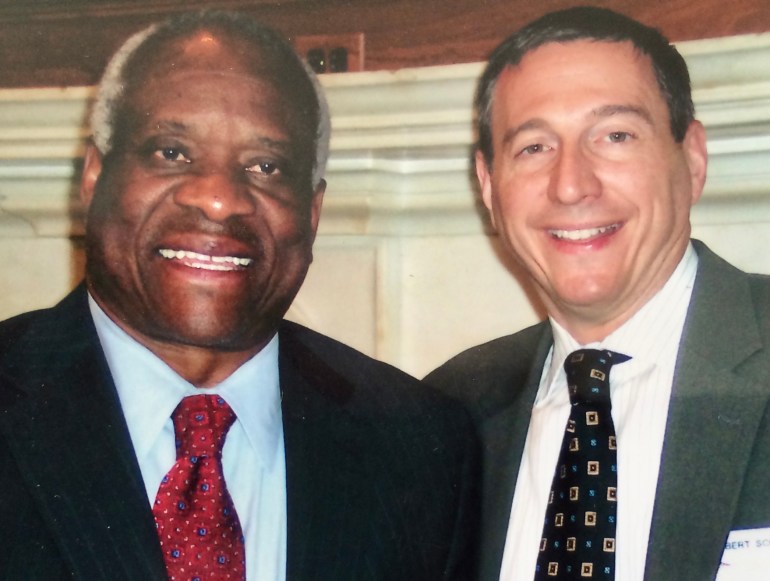
Schenck’s move to DC entrenched him as something of a political fixture. While he was originally leading a church, he eventually focused full-time on political advocacy as part of Faith and Action. The organisation didn’t formally align itself with the Republican Party, but by nature of Schenck’s stance on abortion, they spent most of their time with Republicans. His connections, either directly or by association, ran deep. For instance, Schenck says he often personally ministered to US Supreme Court justices like Clarence Thomas, and had close relationships with lawmakers on Capitol Hill. Sometimes his ministry would take place in a church setting, other times it was more private.
“The closer I got to justices, the more quasi-private it got,” he says. “I was often in the company of other people, but when I had lunch with a justice, it was sort of meant to be, ‘We’re talking to each other as friends.’ On rare occasions, I was in their chambers, and it was very personal.”
For example, the Supreme Court’s 2014 decision in Burwell v Hobby Lobby, which allowed the popular US crafts store Hobby Lobby to deny insurance coverage for contraceptives to its employees, is something Schenck says he heard about weeks before it happened. Schenck claimed to The New York Times and a subsequent House Judiciary Committee that Gayle and Donald Wright – two donors to Schenck’s organisation – told him about the upcoming ruling after having dinner with Supreme Court judge Samuel Alito. Alito denied he shared any information about the decision before the official ruling, as did the Wrights.
To expose the backroom influence he was once a part of, Schenck shared the details of this alleged conversation eight years later, during an investigation into the 2022 leak of the Supreme Court decision overturning Roe v Wade.
It’s actions like these that have led the people who once revered Schenck to now disavow him. He says that many of his former friends have severed ties with him, at least publicly.
“They look at me as having abandoned principles; I see them as doing things that are injurious,” he says. “We understand each other, but professional mores mean we can’t communicate with each other. Other people just see me as a traitor or toxic.”
“Toxic” is the same word Schenck now uses to describe the evangelical movement – a political powerhouse whose leaders were key players in the elections of US presidents Donald Trump and Ronald Reagan and for whom abortion has become a key issue. He says they have abandoned their focus on Jesus in favour of political power.
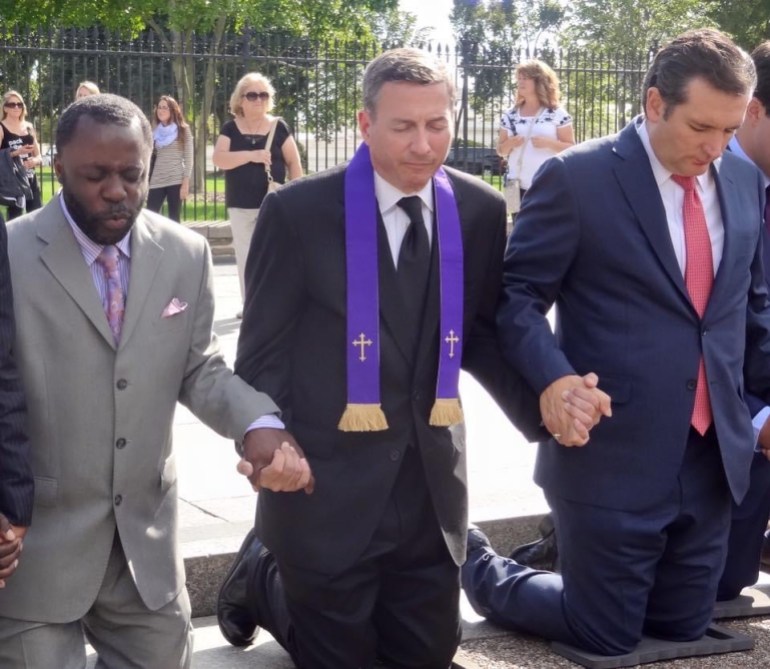
On Schenck’s website, where he keeps a recurring blog, he writes that in the years following Slepian’s death, “I was beginning to harbor silent doubts about what I had been doing for over twenty years. The activism that began for me as a spiritually-driven pursuit of social justice had transformed into the raw intent of political power and cultural dominance.”
When asked to explain his change in beliefs for this article, Schenck acknowledges that he is still processing it. “I’m not even sure I’ll be able to answer that question in the time I have left on Earth,” he says. “But I’m arriving at some conclusions.
“My entry to the pro-life movement, I saw it as similar to the civil rights movement, in that it dealt with human value and the sense that all humans deserve life and opportunity,” he explains. “I now see I was wrong.
“I saw it as women choosing abortion out of contempt, or at least dismissal that the child has value. That’s what I assumed, and it was a terribly wrong assumption. In those years, I failed to investigate and acknowledge that, as a man, I can’t understand what it means to be pregnant. I didn’t realise my limitations. Some of it I can never know; it’s incomprehensible to me and always will be. This is a woman’s dilemma; it’s her experience. It’s her encounter with reality.”
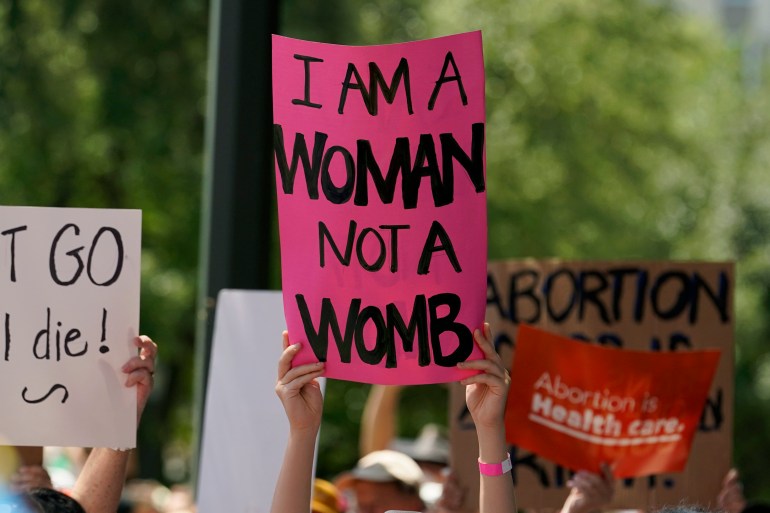
‘A form of confession’
Before it was abortion, it was guns.
Abigail Disney wanted to make a documentary about gun control, and she was searching for characters who would tell a nuanced, compelling story. She found Lucy McBath, whose son Jordan Davis, a Black high school student, was killed by a white man following an argument over loud music. Then she found Schenck.
Despite their stark differences, the pair found common ground.
When talking about Schenck with an interviewer in 2015, Disney said, “I grew up in a super-right wing conservative family, right? So then I went off to college and I turned into myself … a progressive. He grew up in a somewhat liberal house, and became a conservative. So what we realised was we were both bilingual.”
Disney eventually introduced McBath and Schenck as part of her documentary, The Armor of Light, which features both the mother and the reverend. In the film, Schenck wrestles with whether one can truly be both “pro-life” and averse to gun control. One scene stands out: the bespectacled evangelical walking the halls of a convention hosted by the National Rifle Association, the US lobbying group that is forcefully pro-gun.
Surrounded by weapons enthusiasts, he picks up a rifle, looks through its sight, and begins to narrate.
“One of the great philosophical conundrums is, ‘Can bad people do good things and can good people do bad things?’” he asks. “Can good people come together and yet contribute to bad outcomes? Of course. Of course. And we should all be ready to accept that about ourselves, and ask that about ourselves. No matter who we are.”
Schenck calls guns a “theological disaster” and frequently voices his support for tighter legislation on firearms, something evangelicals are more likely to oppose than the average American. His conversations with Disney and McBath further solidified Schenck’s passion for gun control, but the reverend says it was the murder of Dr Slepian that started him on his road to change.
“Speaking about it now,” he tells Al Jazeera “is a form of confession.”
Disney told Al Jazeera that she and Schenck talked about Slepian’s murder and the remorse he felt.
“He told me, ‘I thought we were part of a peace movement,’” Disney says. “What I saw in him was genuine horror.”
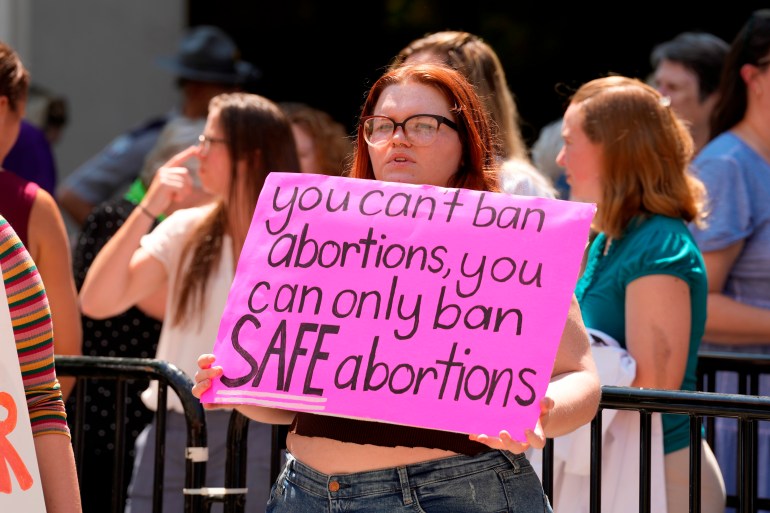
She also saw an open-mindedness she didn’t expect.
“I think I caught him at a moment when he was loosening his white-knuckle grip on his faith system,” she says. “He was starting to imagine he may not be one thousand percent correct on every issue.”
Throughout the filming and promotion of The Armor of Light, Disney and Schenck became closer. The pair butted heads, particularly before Schenck formally reversed his position on abortion, but Disney describes him as a “radical listener” and says she never felt more heard in her life than when she was with the reverend.
Schenck spends a lot of time listening, but when he does talk, he talks like a man who has spent most of his adult life preaching and giving speeches. His speech is deliberate; he uses 10-dollar words when five-dollar words would do. Over the phone and in writing, he comes across as a man engaging in long-delayed reflection. Every time he gets a critical email, for example, he tries to put himself in the shoes of the sender. It helps him take it in his stride.
“It’s mostly stressful for my wife,” he says of the alienation and criticism that have become part of his daily life. “She feels those things more deeply than I do.”
His shift on guns is notable because it was a significant, public departure from evangelicals. That said, Schenck does not have the history with guns that he has with reproductive rights.
When his New York Times op-ed was published in May 2019, it was effectively the final act of separation from his former life. Now he is questioning if the “evangelical” label even applies to him anymore.
If he were to ditch the label, part of him would feel as if he were leaving behind any kind of affiliation with the religious body he has called home for much of his adult life. “Then I would have to make the decision, do I embrace a progressive or liberal church body, and that’s hard for me, because I find the ethos and style of evangelical Christianity very appealing, and I like the history of evangelicalism, especially when you go back 250 years and see evangelicals were abolitionists who worked vigorously to end the slave trade,” he says.
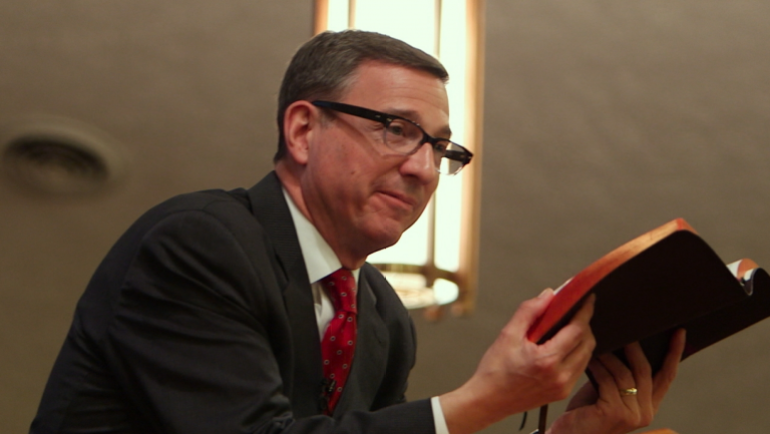
For now, he’s focusing on the Dietrich Bonhoeffer Institute, an organisation he founded to promote the philosophy of its namesake: a German theologian murdered by the Nazis in 1945 for conspiring to rescue Jews and aid resistance efforts. It advocates for gun control and a compassionate approach to immigration. He has also been hired as a lecturer at Hebrew College, and the Bonhoeffer Institute will be folded into the college’s Miller Center for Interreligious Learning and Leadership.
Further, when he is not speaking, teaching or writing op-eds or his blog, Schenck still performs ministerial duties. In fact, during one interview for this story, he was on his way to perform a wedding. He also spends his time talking to just about anyone willing to engage with him.
That includes the people who email him.
“I don’t feel very good about you,” one message reads, “no matter what you are today. I remember you when you were harassing people in front of abortion clinics and railing against same-sex marriage.”
By now, Schenck expects the anger; it’s part of his everyday life. So, as he did to so many others, Schenck replied to this email.
“I want to honour your anger at me. You have a right to be angry at me, and I won’t say anything if you don’t want me to.”
Then he tries to explain how he got to where he is today. Sometimes people reply, sometimes they don’t. It’s a little more complicated when he gets emails from people who wish he was who he used to be.
“On the right, I’ll say, ‘I understand because I was you, and I may be the reason you believe these things. But this is a personal journey for me, and this is how I feel.’”
In a way, Schenck is grateful for the emails. He wants to keep engaging with people who disagree with him. After all, when he met Disney, the two did not initially agree on abortion. Despite that, they became friends, and later, Disney would become one of the many women who helped Schenck see a different side to a story he once thought he knew everything there was to know about.
“I, myself, had an abortion when I was 21,” Disney says. “I told him that once we knew each other very well and I expected him to want to stop working with me. It was the exact opposite of that.”
Instead, Disney says Rob lauded her openness, and left it at that. Weeks later, he brought it up with her.
“I wonder if you would trust me with the story of your abortion,” he says.
“That was such a kind and generous way of saying it,” Disney recalls. “So I found myself telling him the whole story about it, and I told him things I never would’ve told an anti-abortion person. But because he was my friend, because he was so compassionate, I told him.”